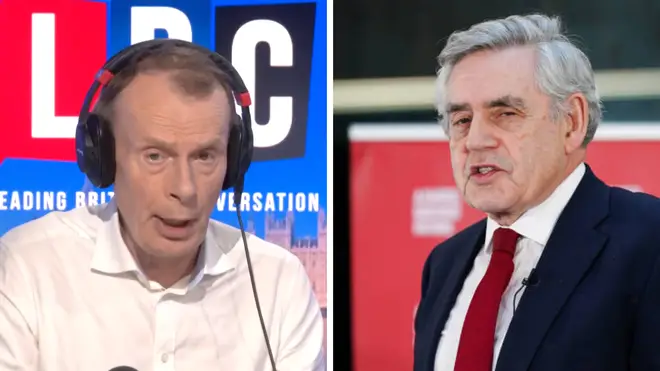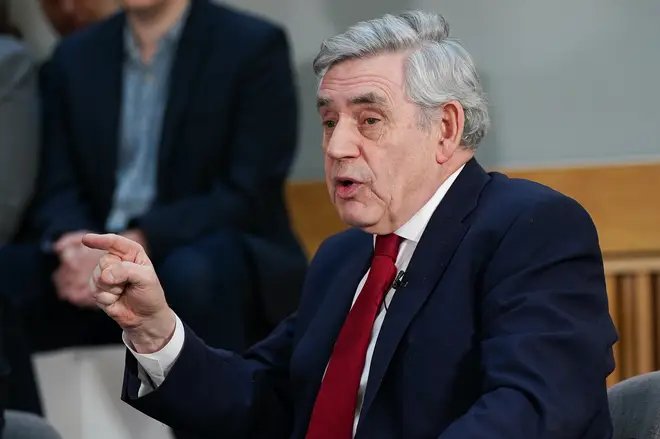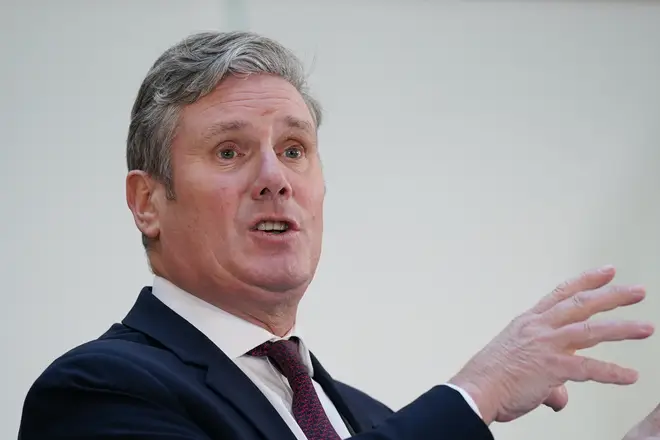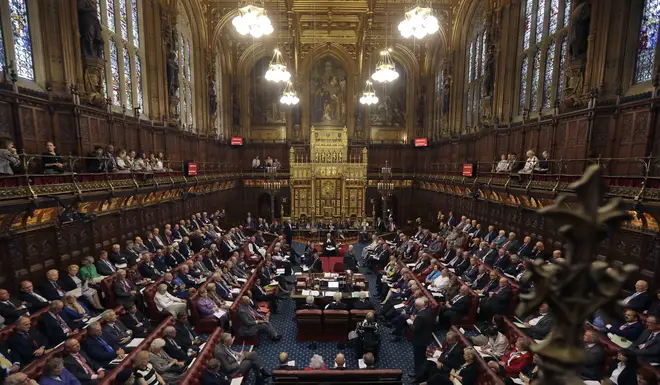
Clive Bull 1am - 4am
5 December 2022, 18:36 | Updated: 5 December 2022, 18:38

The Conservative government is the "most corrupt" for at least a century, Gordon Brown has claimed.
Former Labour Prime Minister Gordon Brown made the claim on LBC on Monday after he unveiled sweeping plans to reform the British constitutional settlement, including creating a 'corruption commissioner' to root out dodgy dealing in the government.
It comes after recent reports suggested that Baroness Michelle Mone may have profited from a PPE company winning public contracts worth more than £200 million after she recommended it to ministers in the early days of the Covid-19 pandemic.

Asked by Andrew Marr if the current government was the most corrupt administration in British history, Mr Brown said: "I think it's possible to argue that the governments of the 18th century were perhaps more corrupt, but in terms of the scale of resources that appear to be wasted, or not properly used, I think it's very difficult to see that this government has not been the worst in living memory, at least in the worst for a century.

Gordon Brown comments on lack of growth in the last 12 years
"You know, Lloyd George, obviously was criticised for selling honours and that led to the Sale of Honours Act in 1925. All these criticisms of cronyism and conflicts of interests have got to lead to change.

"And therefore, the change is not going to come from the Conservatives.
"They're not proposing it, change has got to come from Labour, and that will come with Keir Starmer."
Andrew asked if Mr Brown's call for a corruption commisioner was "directly because of what happened during the Boris Johnson administration".
Mr Brown said: ‘There's no doubt that what happened during that administration is something that leads one to wonder why there are not better controls within Westminster and Whitehall and why there's not an agency that looks at these issues very carefully."

Andrew pressed: "You’re talking about Baroness Mone. are you?"
Mr Brown replied: ‘Yeah, I'm talking about 200 million of contracts where there are now question marks over how they were awarded. You need an agency that can investigate these things quickly.
"Because what's happened in the last few years is people have lost trust in the legitimacy and the credibility of national institutions.’
It comes after Mr Brown and Sir Keir Starmer said Labour would abolish the House of Lords in Labour's first term should the party win the next general election, following a report by the former Prime Minister.
Sir Keir criticised the upper house of Parliament as "indefensible" in a speech on Monday.

He said he wants to replace it with an elected chamber,, among a raft of other proposals including more devolution set out in Mr Brown's report.
"I think the House of Lords is indefensible. Anybody who looks at the House of Lords would struggle to say that it should be kept," Sir Keir said.
"So we want to abolish the House of Lords and replace it with an elected chamber that has really strong mission."
Sir Keir said the ideas in Mr Brown's report will be consulted on while Labour works out how they could be put in place.
The Lords is a frequent target of attempted reforms, viewed by some as an anachronistic part of the constitution.
The bulk of the chamber is made up of appointments, with other seats held through inheritance or by bishops. Appointment to the Lords is sometimes seen as a way of prime ministers rewarding politicians who have been loyal to them, or for donors that have handed their party money.
It is a weaker chamber than the House of Commons, and its main role has largely evolved to be a scrutinising or revising body.
Its powers to block new laws have been significantly curtailed.Labour has long been in favour of replacing the Lords. Its past manifestos have featured a proposal to replace it with a senate representing the nations and regions of the UK.